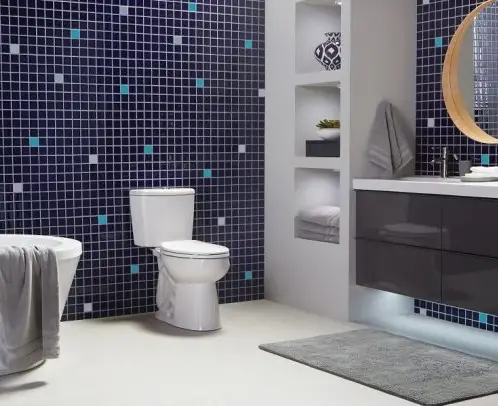Can You Flush A Toilet If The Power Is Out?

Power outages are never a good situation. When night falls you may need to use candlelight, you might feel vulnerable, and you cannot use any electrical appliances that you typically need. There is one aspect of a power outage that you may not have thought of, and that is your plumbing system. Your plumbing system might run on electricity.
Although your water may still work when the power is out, your toilet will not work because the pump needs electricity. If you know that a planned outage is coming, you need to prepare yourself for what parts of your home will not be functioning along with your toilet.
Every toilet has a “final flush”. This flush is the last of the water within the tank, that allows you to flush the toilet one more time even if there is no power or water source.
This is due to the fact that the toilet will refill itself after every flush, so there will be a reserve amount in the tank ready for an emergency situation. Be aware that you will only get one flush per toilet. If you have extra water on hand, you can fill up the tank and use that to flush the toilet as well.
If you live in city limits, then your water may or may not function depending on where you live.
Because city water typically comes from rivers, wells, and reservoirs, you most likely will have water if the power is out and you live in a home within city limits. This is because the water will flow to your home by gravity. During a power outage, only the water that is in the main towers will be available.
Living in an apartment building that has multiple floors means that your water will stop functioning immediately in a power outage. This is because there is usually a water pump system in the basement so, without power, the water will not be able to be pumped up.
If you live in a home that uses well water you may be out of luck when it comes to using your water in a power outage. This is because most well pumps are powered by electricity. If you have a reservoir, it will probably hold anywhere from 10 to 50 gallons. In this case, you will have water until the supply finishes.
If you live in a house and have city water, your water supply most likely will not be lost during a power outage. Despite this, you will definitely not be able to use any plumbing appliances that run on electricity.
If you live in a house and get your water from the city, your sinks should function as normal. Hot water may not exist, but this will depend on the type of water heater that is installed in your home.
Traditional tank-style water heaters may be able to allow you to use hot water during a power outage. The only catch is that you will have a limited amount of water, and it will only remain warm for one to two hours.
Both electrical and gas water heaters have the same process because gas heaters require electricity to spark the pilot and continue your water supply. The recommendation? Take a shower quickly after the power goes out and hope it comes back on in the next 12-24 hours.
Because sump pumps need power to function, it can lead to bad situations when the power goes out. Especially if there is a bad storm that has caused the power to go out, not having a sump pump to prevent your basement from flooding is dangerous.
When the power is on, this appliance can be very helpful. They provide hot water and allow you to enjoy modern life. If there is an outage, they will provide you with no hot water.
Many sewer systems actually function by gravity, so there should not be an issue during an outage. If your sewer pipes work by way of an electric pump, then you should not flush the toilet more than you have to. If you do, then you may cause waste to back up, with the risk of overflow into the house.
There are many different plumbing risks that go along with a power outage. This might include sewer back up, frozen pipes, or flooding in the basement. Although we explained sewer backup and a flooded basement above, frozen pipes are a real threat as well.
When your power goes out, there will be some water left in your pipes. If it is cold outside during the blackout, you may need to empty your pipes to avoid them from freezing. If you do not do this, your pipes have the risk of bursting due to water expanding when it freezes.
Frozen pipes are especially a concern when it comes to older homes because the pipes are not insulated like new pipes are. Check the garage as well as your outside plumbing for any pipes that are not insulated. You can wrap these in blankets, foam, or even towels to help avoid freezing.
If you know a power outage is going to occur, you can prepare yourself.
Generators can offer you an alternative power source in case of a power outage. They can power your sump pump, water heater, toilet pumps, and other appliances.
Toilets are great because they continue to function simply by pressing down the handle. If you are in a power outage, then you can put water in the tank and flush it.
There is only one issue with this method and that is if you have lost power for over 24 hours. If you have an electric sewer system, then you will need to make sure you do not overuse it because it will not be functioning and you might block it up.